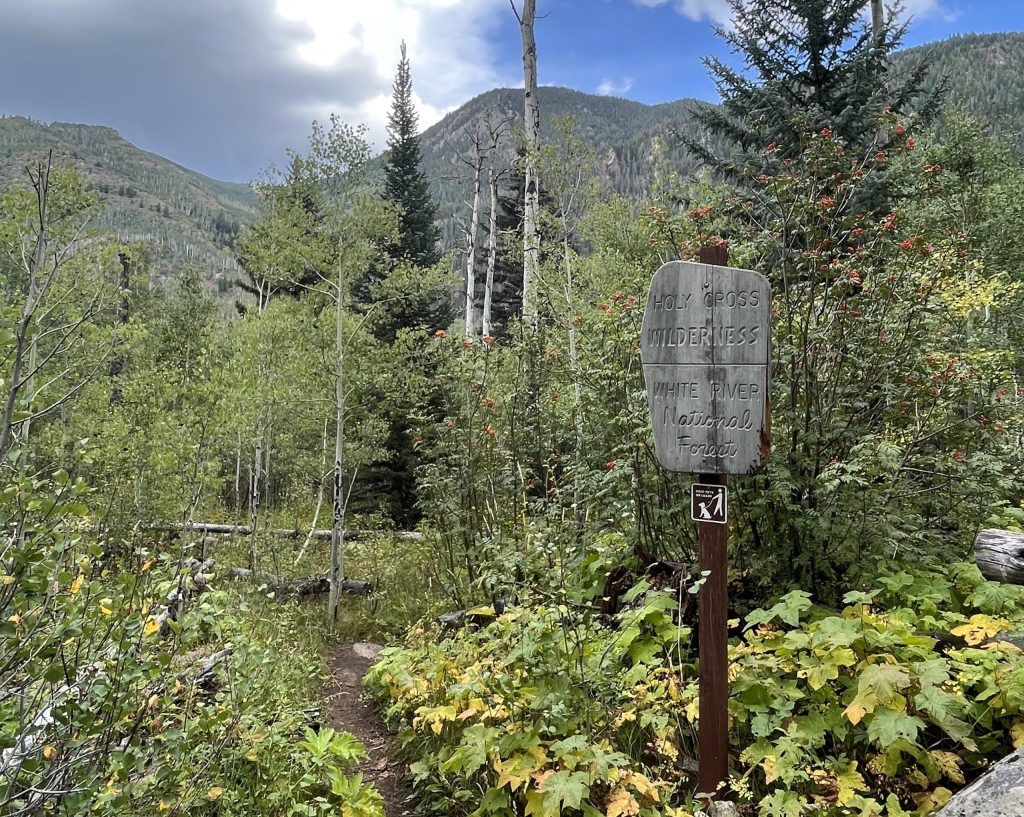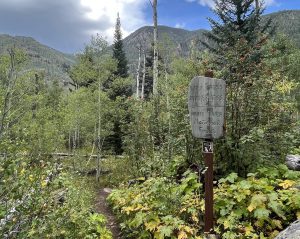Former supervisor of Colorado’s busiest national forest says public lands are ‘being held captive’ amid government shutdown
President Donald Trump threatens further staffing cuts to federal agencies while using government websites to point the finger at his political opponents for the shutdown

Ali Longwell/The Post Independent
During his more than three decades working for the U.S. Forest Service, Scott Fitzwilliams endured his fair share of government shutdowns.
There was a 35-day partial shutdown — the longest in the nation’s history — during the winter of 2018-19, during President Donald Trump’s first term. There was also the 2013 shutdown, which lasted 16 days, and the second-longest shutdown in history that lasted 21 days in 1995-96, among others.
“I’ve been through a bunch,” said Fitzwilliams, who retired as the top supervisor of the White River National Forest, a position he had held for 15 years, earlier this year. “They’re messy, disruptive and chaotic — that’s for sure.”
The White River National Forest is the most-visited national forest in the United States, with more than 15 million visitors annually in recent years. It includes 11 ski resorts, 10 peaks over 14,000 feet and popular destinations like the Maroon Bells and Hanging Lake.
With Congress again reaching an impasse over the federal budget this week, thousands of employees at the Forest Service and other federal land management agencies are being furloughed, and most of these agencies’ activities are grinding to a halt.
While there have been shutdowns in the past, Fitzwilliams said “this one is different.”
Not only are Senate Republicans and Democrats at an impasse, but Trump has threatened to fire federal employees who are furloughed and official government websites are blaming the administration’s political opponents for the shutdown, he said.
“It’s really disappointing that our public lands — which belong to all of us, they’re open and used by all walks of life and all demographics and all parties and political persuasions — are being pinched and being held captive through these political fights,” Fitzwilliams said.
‘Unprecedented’ political messaging
As the government shut down on Wednesday, Vail resident Sue Froeschle started getting texts from her friends telling her to visit the White River National Forest website.
What Froeschle found on the official government website alarmed her. At the top of the page, a banner read, “The Radical Left Democrats shutdown the government. This government website will be updated periodically during the funding lapse for mission critical functions. President Trump has made it clear he wants to keep the government open and support those who feed, fuel, and clothe the American people.”
A longtime federal employee, Froeschle retired as the public affairs officer for the White River National Forest in 2005. She said she had never seen such an overt political message on an official government website.
“It’s unprecedented,” Froeschle said of the messages plastered across government websites. “I’ve never ever seen this or heard of anyone doing anything like this, and I worked for the government for 32 years.”
Republicans and Democrats have remained opposed to each other’s government funding proposals, as Democrats want to include an extension of Affordable Care Act subsidies, and Republicans, who control Congress, want to pass a “clean” funding bill that doesn’t include those benefits. Each party is blaming the other side for the shutdown.
During Froeschle’s time working for the federal government, when it came to politics, “you couldn’t say anything or do anything, even in your own home practically.” She said this was because of the Hatch Act and other federal policies.
The Hatch Act is a law that limits the political activities of federal employees and agencies to ensure that programs are administered in a nonpartisan fashion and to protect employees from political coercion in the workplace.
“In every single shutdown I’ve been through, which has been under both sides of the aisle, not only did that not happen,” Fitzwilliams said of the political messaging on government websites, “but it was made very clear to employees and agencies, we shall not — because of the Hatch Act and other rules — get involved in that.”
Federal employees and ethics experts have told national news outlets across the country, including the New York Times and NPR, that the statements on government websites could violate the Hatch Act.
A spokesperson for the U.S. Department of Agriculture did not return a request seeking comment on Wednesday over the political messaging.
Froeschle, who said that she is registered as an “unaffiliated” voter and has friends that lean to both the right and the left, noted this isn’t about which party she aligns with — it’s about the federal government inappropriately taking a political stance.
“If the statement had said ‘Congress had shut the government down,’ I would not have been offended,” Froeschle said. “But when it said, ‘the Radical Left Democrats have shut the government down,’ that put me over the top. That’s not acceptable.”
Threats to deepen federal cuts
Amid the budget fight in Congress, Trump’s administration has threatened to use the shutdown to fire federal workers, expanding on the deep cuts his administration made to staffing at federal agencies earlier this year.
On social media Thursday, Trump described the shutdown as an “unprecedented opportunity” as he pondered “which of the many Democratic Agencies” to make cuts to and “whether or not those cuts will be temporary or permanent.”
Fitzwilliams said further cuts to federal staffing would build upon what he has described as a “deliberate dismantling” of public lands.
In the first weeks of his presidency, Trump issued an executive order directing the heads of federal agencies to shrink the size of the federal workforce to eliminate “waste” and “bloat.” That was quickly followed by the Department of Government Efficiency firing thousands of probationary employees — who are typically employees in their first year of service or who recently received promotions — across the federal government, including an estimated 3,400 at the Forest Service.
Hundreds more federal workers — including Fitzwilliams — have left their roles through the Trump administration’s deferred resignation program, which allowed employees to voluntarily resign while continuing to get paid for months.
Whether or not more federal firings happen, Fitzwilliams said that even the threats of layoffs have an impact on Forest Service employees.
“This has not been a fun nine months for federal employees. It’s been challenging and difficult for the ones that have hung in there and are doing their best,” Fitzwilliams said. “Then you throw this kind of vague threat of large-scale layoffs. As a (mid-level federal employee) living paycheck to paycheck in Colorado, you don’t want to hear that.”
Shutdown impacts
The government shutdown comes amid what is a busy season for the White River National Forest, Fitzwilliams said. At the Maroon Bells, fall is “our Black Friday” for revenues from recreation permits and other sources — but the Forest Service typically doesn’t collect fees during shutdowns, he said.
A spokesperson for the White River National Forest Service did not respond to questions emailed by a reporter on Wednesday asking how the national forest would be impacted by the shutdown.
“The biggest impacts are the ability to respond to the public,” Fitzwilliams said, noting that the shutdown will likely result in fewer rangers patrolling national forests and delays to permitting.
Due to overlapping hunting and leaf peeping seasons, the White River National Forest usually makes a concerted effort to have staff in the field to educate the public and enforce regulations this time of year, Fitzwilliams said. But the Forest Service crews that have been short-staffed all summer due to cuts will be stretched even thinner due to the furloughs during the shutdown, he said.
The longer the government shutdown goes on, the greater the impacts will be, Fitzwilliams said. During the 2018-19 shutdown, he said the Forest Service had to dig itself out of a hole after being out for more than a month.
“When you get back, it’s a whole startup process. It is disruptive. It leads to more inefficiency and frustration with the public and with our government,” Fitzwilliams said. “What is disheartening and demoralizing for employees is they get stuck in these political fights squeezed in the middle and used in various ways. That’s not why we joined up.”

Support Local Journalism

Support Local Journalism
Readers around Glenwood Springs and Garfield County make the Post Independent’s work possible. Your financial contribution supports our efforts to deliver quality, locally relevant journalism.
Now more than ever, your support is critical to help us keep our community informed about the evolving coronavirus pandemic and the impact it is having locally. Every contribution, however large or small, will make a difference.
Each donation will be used exclusively for the development and creation of increased news coverage.










